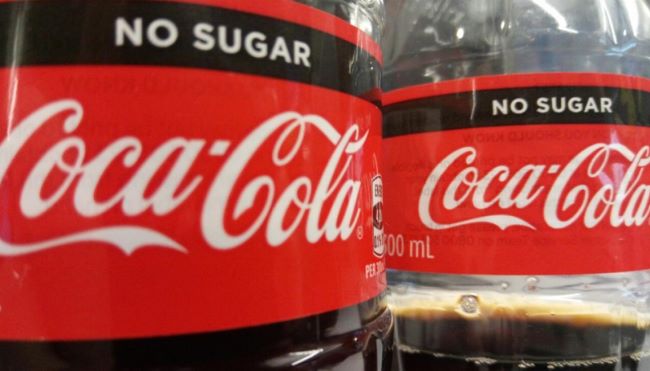
The Federal Competition and Consumer Protection Commission (FCCPC) has accused Coca-Cola and the Nigerian Bottling Company (NBC) Ltd. for deceptively swapping sugar for artificial sweetener and has thus issued its final regulatory order.
A statement by the management of FCCPC in Abuja on Thursday, said the order was issued to the companies for misleading trade descriptions, unfair marketing tactics which violated Sections 116 and 124 (1) of the FCCPAct.
The Commission said the companies had continued to mislead consumers to believing that Coca-Cola “Original Taste, Less Sugar” variant as one and the same, as well as unchanged, when in actual fact, same had indeed changed.
FCCPC said its investigations revealed that the variant was different, differently formulated and not the same as their otherwise “classic, or “Original Taste”.
The Commission said it had reserved the quantum of the penalty appropriate under the FCCPA and Administrative Penalties Regulation 2020 (APR) for further regulatory action, and would impose same in due course.
The Commission said the companies had initially sought to end the investigation and regulatory process by adopting clearer, more transparent and truthful descriptions and differentiation of the relevant variants of their products.
”The Commission granted this accommodation, and also gave Coca-Cola and NBC the opportunity and prerogative to propose remedies including descriptions and product differentiations that comply with applicable statutory standards.
”Coca-Cola, NBC, and the Commission engaged in a lengthy process of building consensus around a mutually agreed differentiation and description of the different relevant products.
”Coca-Cola and NBC sought an extended timeline before changing to the newly mutually agreed product descriptions and differentiations as proposed by them in order to exhaust existing packaging inventory, and lead time for new packaging inventory to arrive in stock.
”The Commission granted the extension as requested.
”On the eve of the cut-off date, and end of the extension, Coca-Cola and NBC abandoned the months of work and mutually agreed outcome with the Commission, for a different business strategy, which has turned out not to meet the applicable standards.
”Over the next years, it became clear to the Commission that neither Coca-Cola, nor NBC desired or intended to provide transparency to consumers in a manner that complied with the standards in the FCCPA,” the Commission said.
FCCPC said that in spite of the multiple and repeated engagements with Coca-Cola, NBC and their respective legal practitioners, the current market status and consumer feedback demonstrated the ineffectiveness and weak differentiations the companies had adopted.
”Coca-Cola and NBC after regulatory intervention still failed to take appropriate steps to modify misleading behaviour demonstrating that the companies acted intentionally by misrepresenting Coca-Cola Original Taste Less Sugar as Coca-Cola Original Taste in a deliberate business strategy.
”Furthermore, NBC used identical packaging for both Zero Sugar and its 50:50 variant of Limca Lime- Lemon flavoured drink, misleading consumers and violating Sections 17(g), 116(1) & (2), and 123 of the FCCPA.
”This also violates Section 2(a) of the National Agency for Food and Drug Administration and Control Act 2004.
”Accordingly, and considering that the conduct continues and remains, the Commission has entered, issued and served its Final order on Coca-Cola and NBC on July 29.
”The Final Order contains the Commission’s findings”.
The Commission said the investigation commenced in 2019.






















